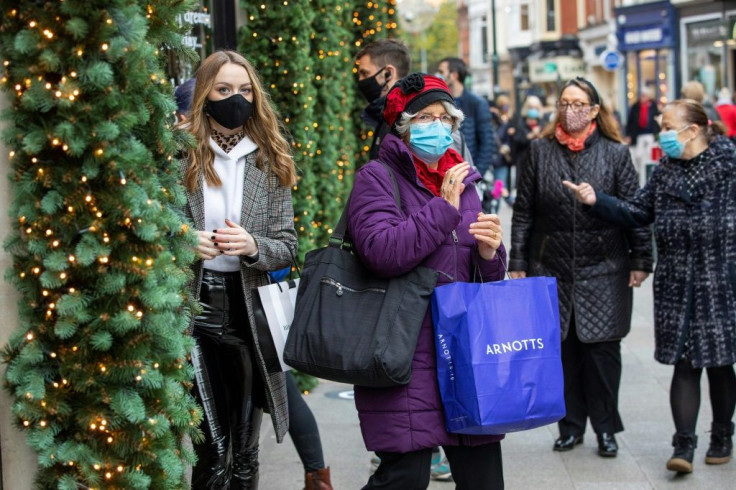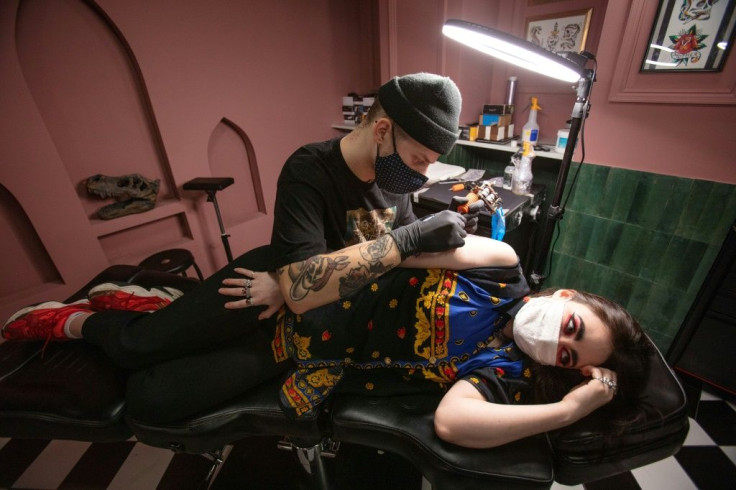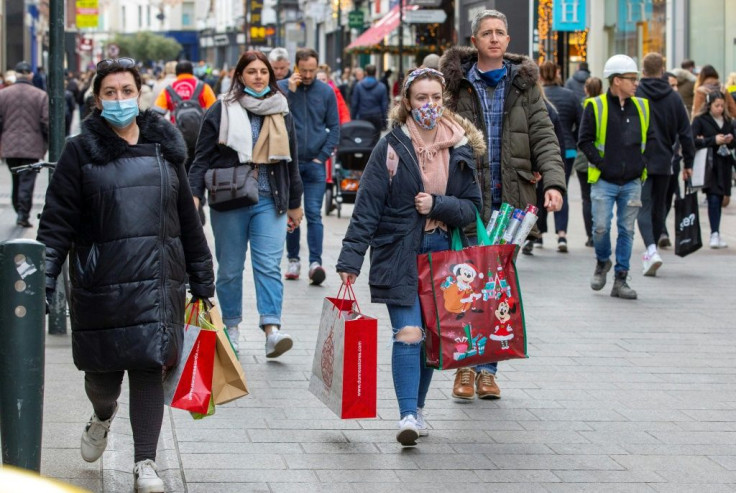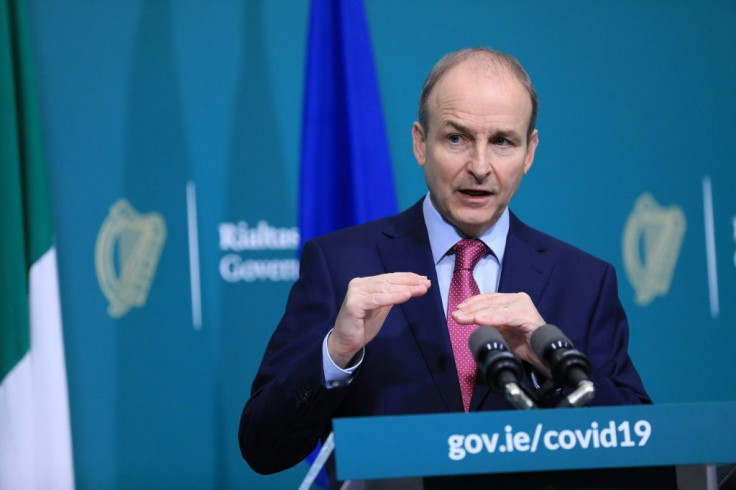Dublin Has Shopping Fever As Ireland Ends Second Virus Lockdown
Dublin thronged with face-masked Christmas shoppers on Tuesday as Ireland ended a second partial coronavirus lockdown, allowing non-essential retail to resume after six weeks of tough restrictions.
Dozens queued for the mid-morning reopening of upmarket department store Brown Thomas, festooned with seasonal decorations in the epicentre of the capital's shopping district.
Amidst tables of designer handbags one customer confided in staff that she had taken the morning off work to shop.
"It's been very difficult," said Brown Thomas stores director Mark Limby of the six week hiatus.

"We have been trading online, that's been exceptionally good for us. It doesn't make up for the stores not being open," he told AFP.
As Ireland loosened virus curbs in place since October 22, museums, galleries, libraries, cinemas and places of worship also reopened.
Close-contact services such as hairdressers and tattoo parlours were also allowed to resume trade.

Ryan Kelly, co-owner of tattoo parlour Heartbreak Social Club, opened a second shop in October as Ireland was on the cusp of returning to a partial lockdown.
It was allowed to trade for one day before the shutters came down for a month and a half.
"We knew it would be a challenge but opening today we're busy," said Kelly.
"There's not really much worse situations we could face in the future."
The neighbouring George's Street Arcade -- home to 40 independent retailers -- closed for the first time since 1892 in March, when Ireland entered its first lockdown.

On Tuesday shopkeepers returned to unlock premises for the second time.
Owner Gwen Layden told AFP she did not charge rent during the closures.
"The mood is very different," she said, gesturing to other shops which have not reopened.
"There are shutters all around me here ... something happened that they're not reopening."
"That's a lifetime of somebody having invested in their business and that might be over for them."

On Friday, pubs and restaurants serving food will also open across Ireland, although drinking-only establishments will remain closed.
Ahead of Christmas, the government is urging people to wear masks outdoors on "busy streets", starting on Tuesday.
In central Dublin noticeably more pedestrians were sporting facemasks, while inside shops they are mandatory.
Infection rates are nevertheless bound to rise in the run-up to the festive season, Foreign Minister Simon Coveney told state broadcaster RTE on Monday.
"The challenge is to keep that increase as low as possible," he said.
According to the latest official figures, there have been 2,053 deaths from coronavirus in Ireland, a nation of five million.
The daily death toll peaked at 77 in mid-April and in recent weeks has frequently remained in the single digits.
But the Republic was the first nation in Europe to return to a partial lockdown mirroring the first in March as the rate of "second-wave" infections surged.
According to latest data from the European Centre for Disease Prevention and Control, Ireland now has the second-lowest 14-day incidence rate of the virus in the EU behind Iceland.
"The efforts and the sacrifices that each of us has made is working. Lives have been saved," prime minister Micheal Martin said in a national address Friday.
"In easing restrictions we are going as far as we believe it is possible to achieve the best balance of health, economic, and social considerations, but no further."
Under the relaxed restrictions in effect from Tuesday, household visits remain off-limits and people have been told not to travel outside their county of residence.
Irish police said on Monday that "in excess of 100 checkpoints" will operate to deter any inter-county travel.
However, last week the government announced plans to ease pandemic curbs over Christmas and New Year.
From December 18 to January 6, up to three households will be permitted to mingle and inter-county travel limits will be lifted.
"This cannot and will not be the kind of Christmas we are used to, but it will be a very special time when we will all be able to enjoy some respite from the hardships of 2020," Martin said.
© Copyright AFP {{Year}}. All rights reserved.




















